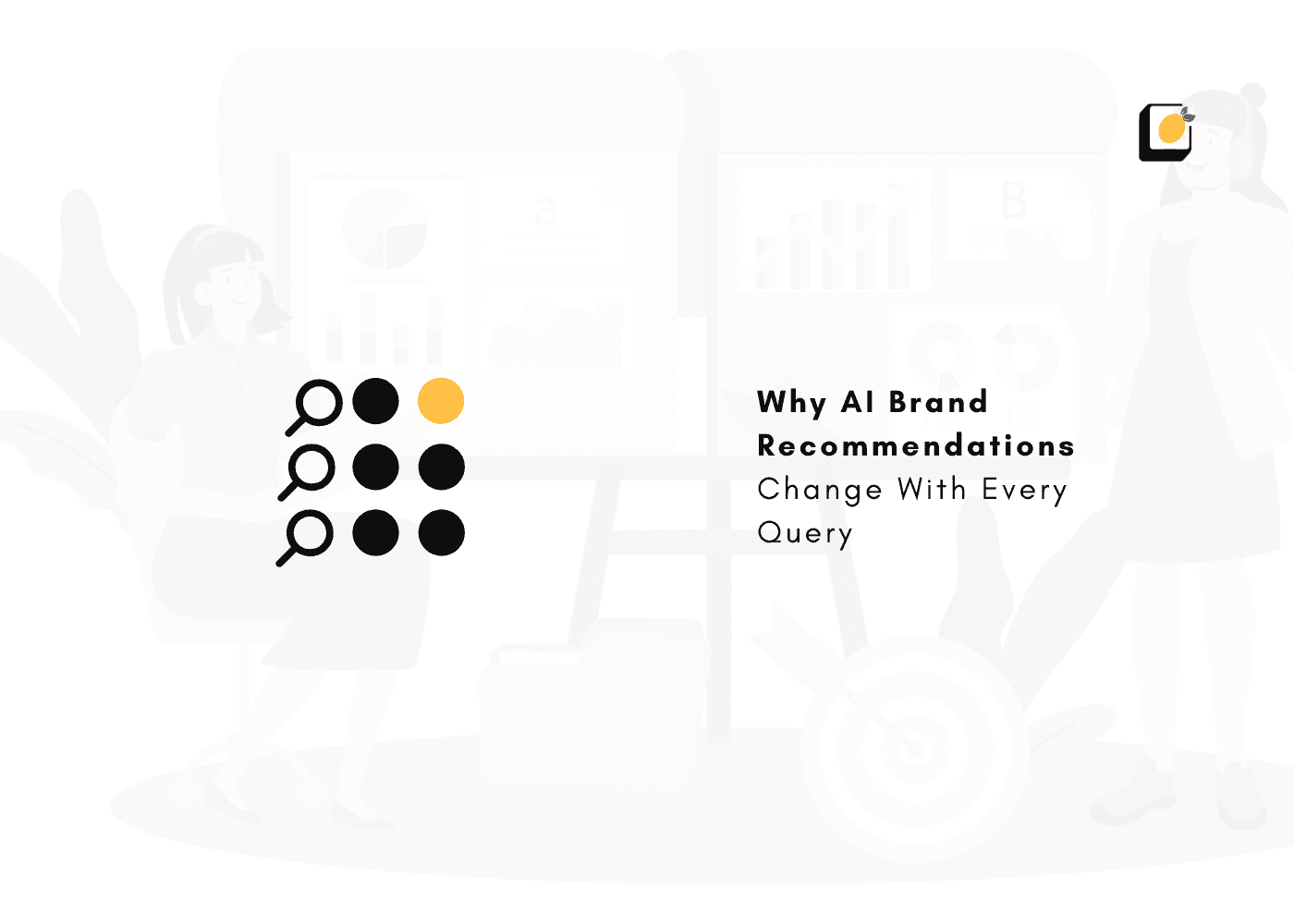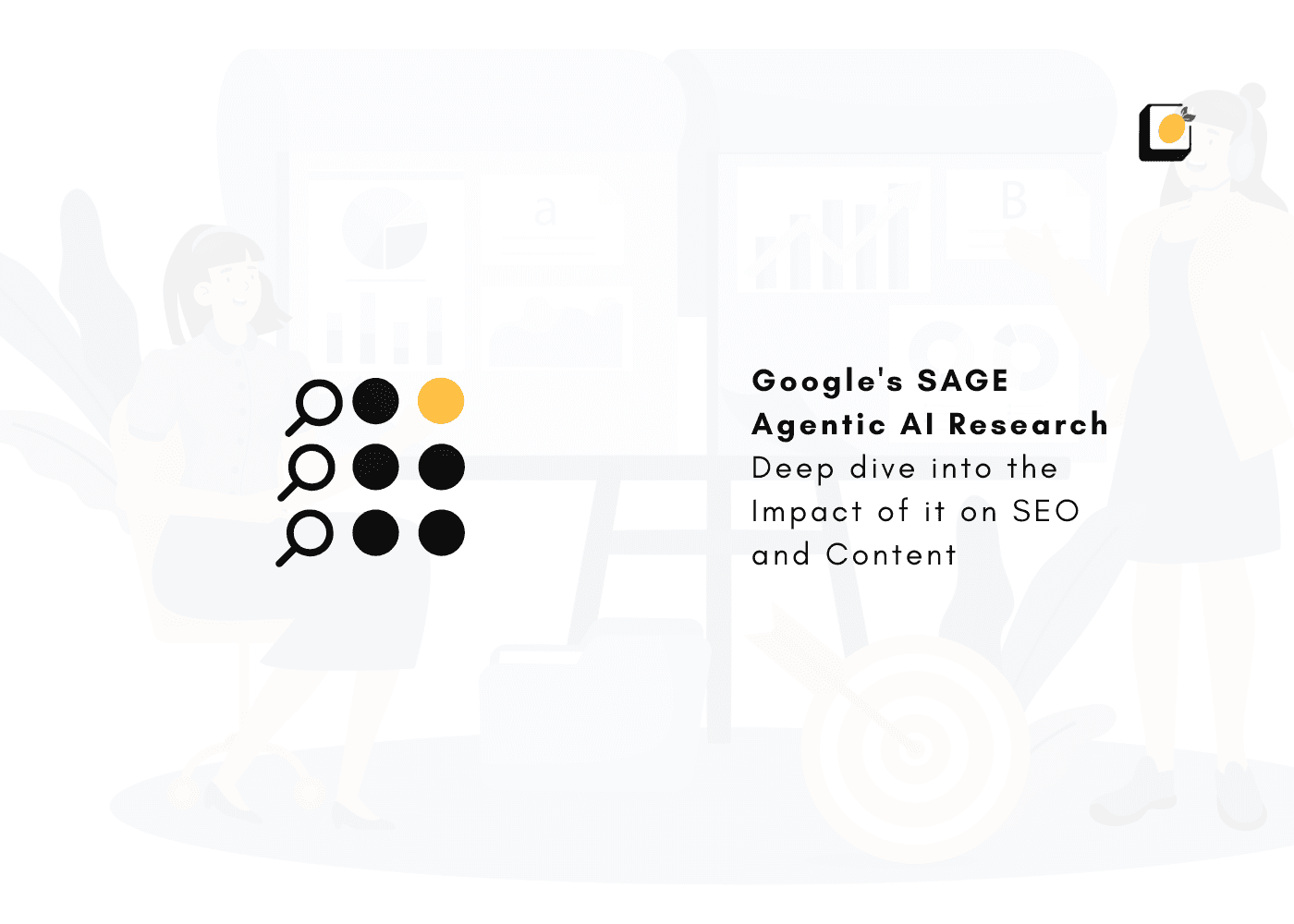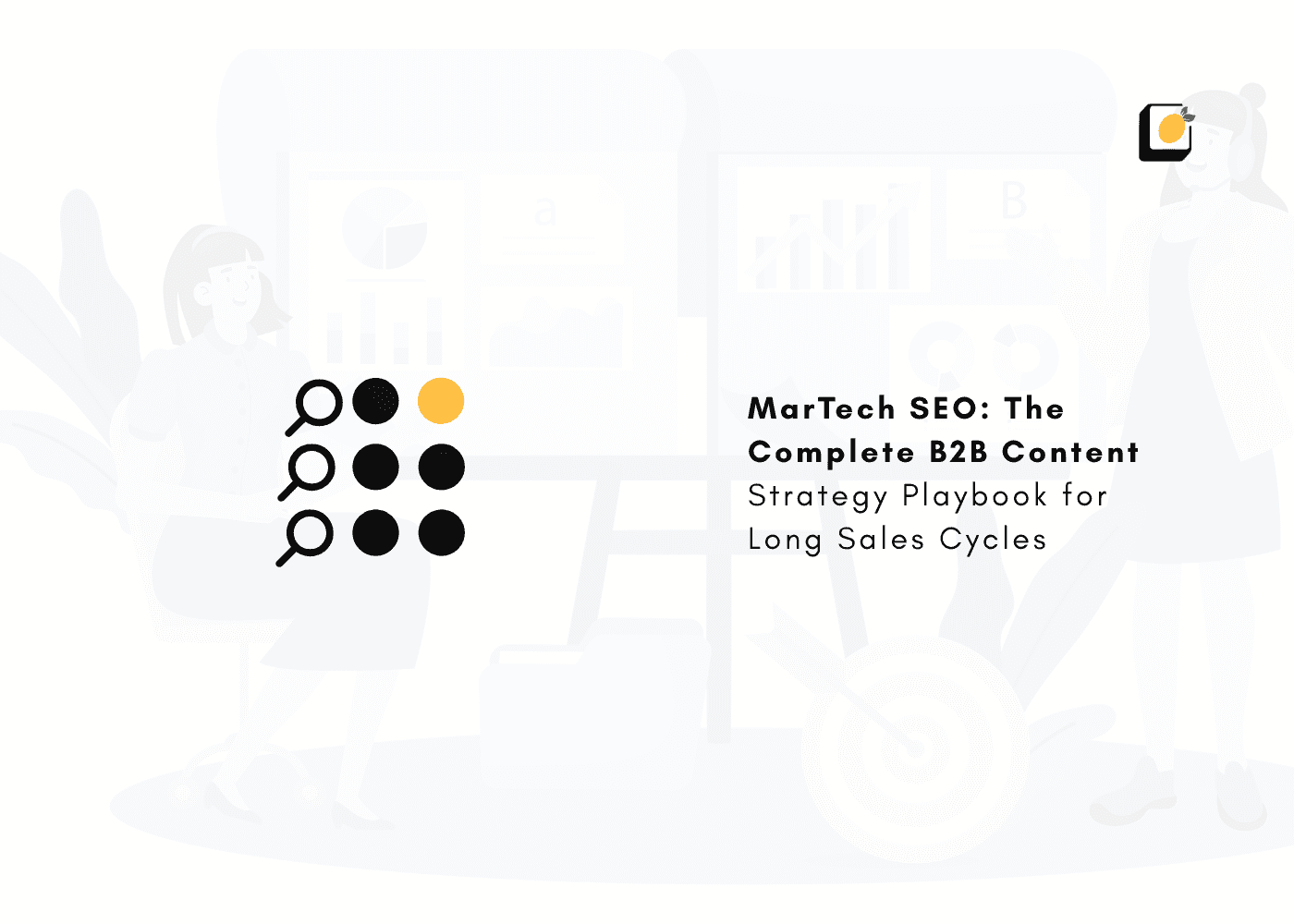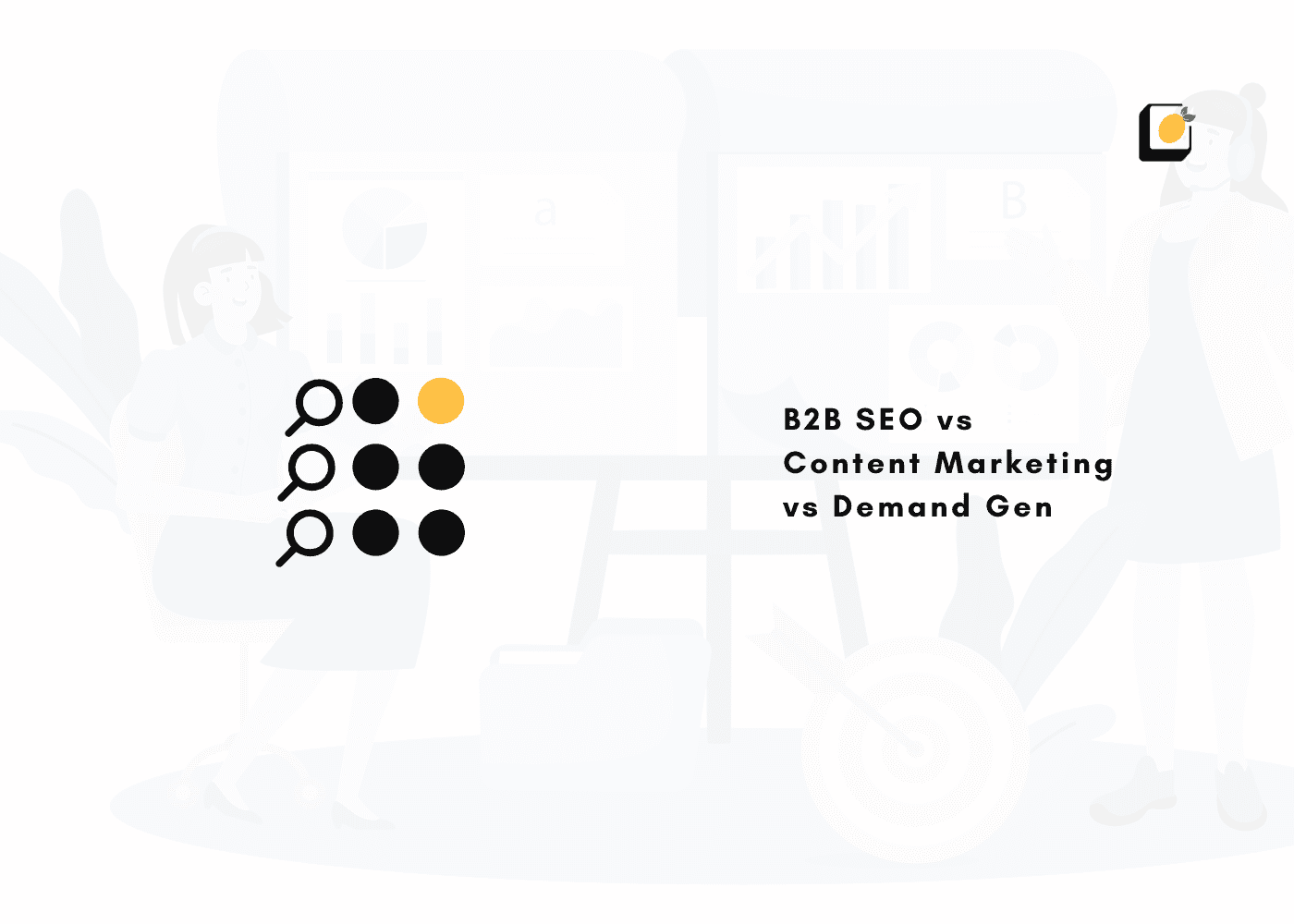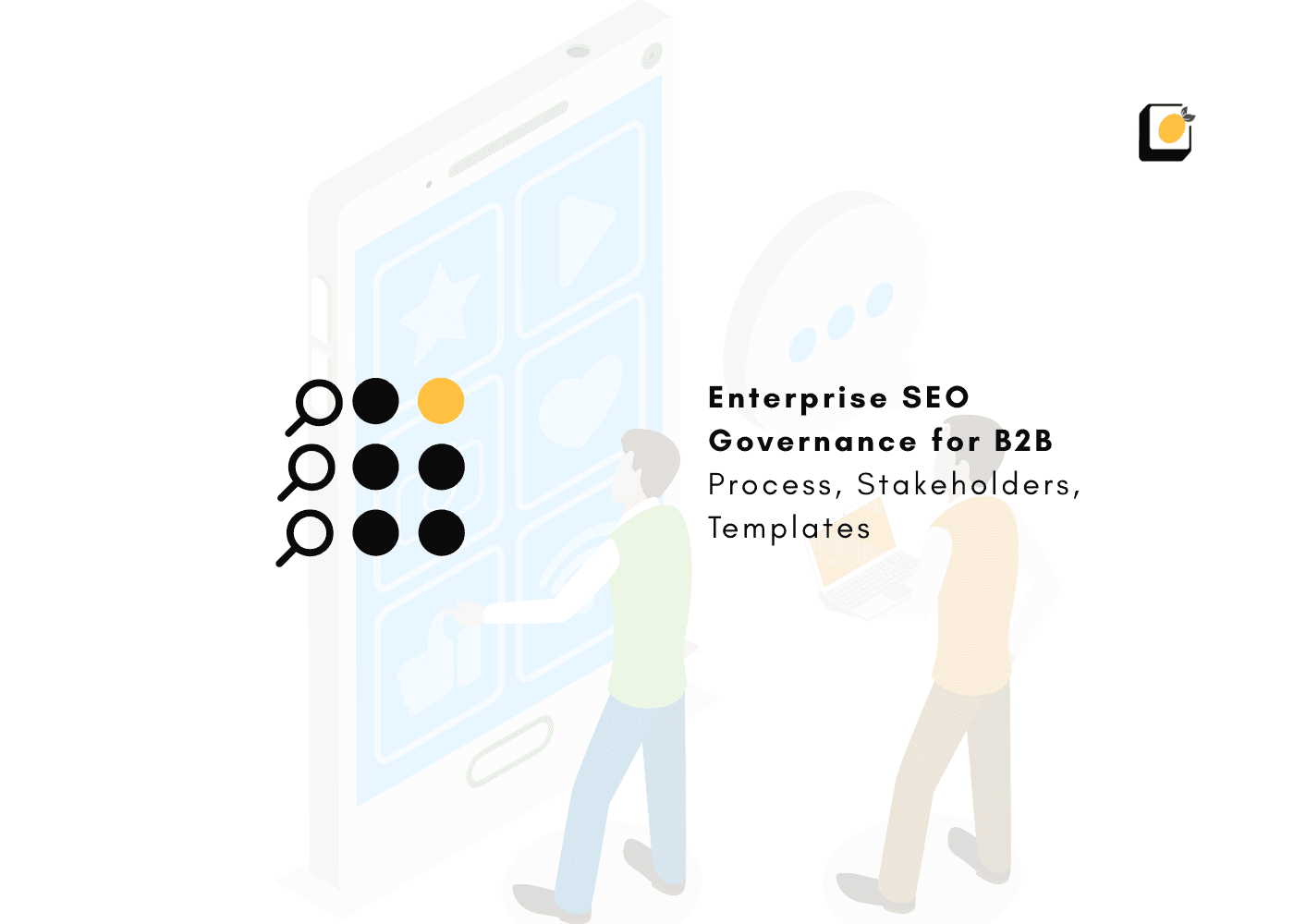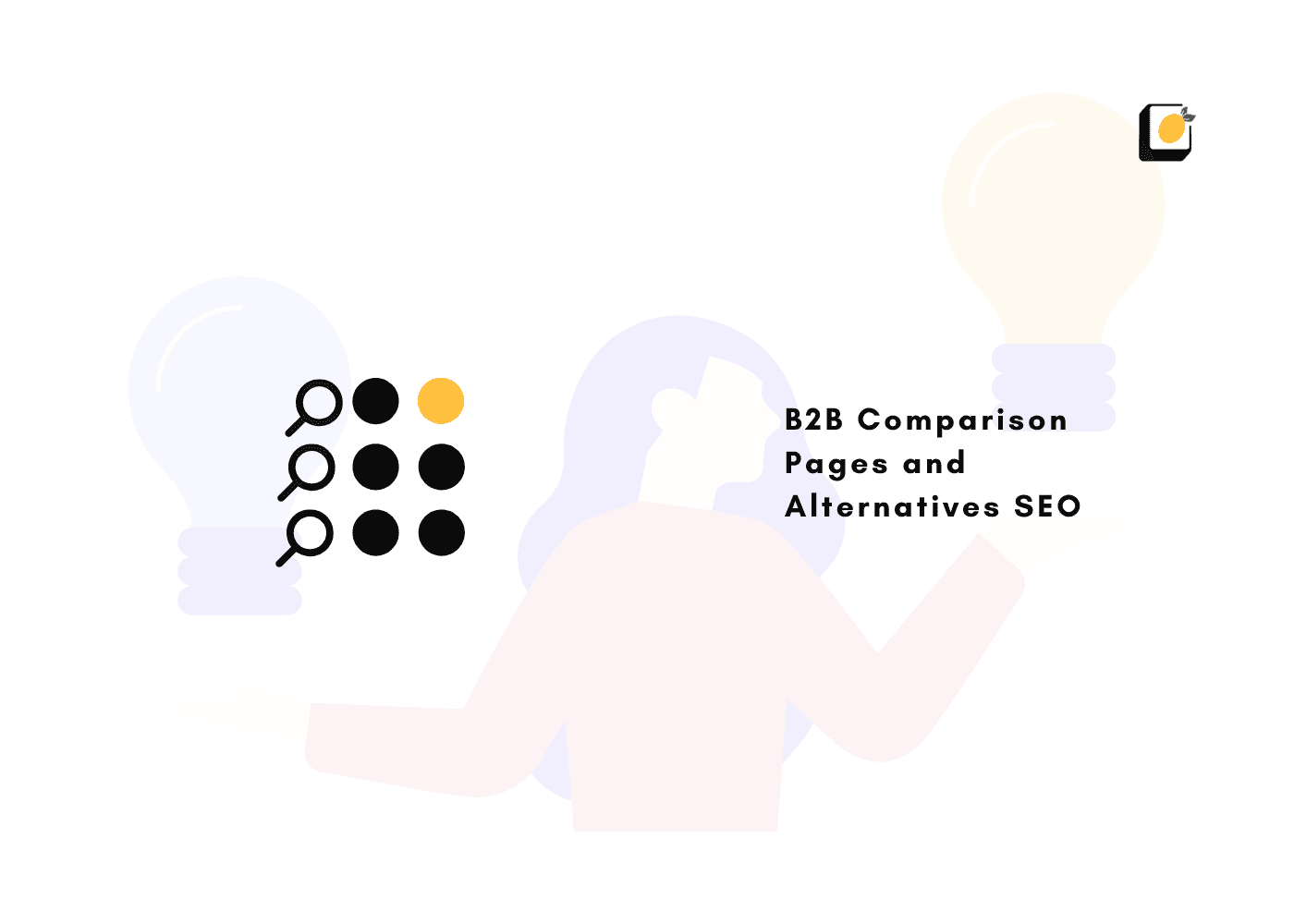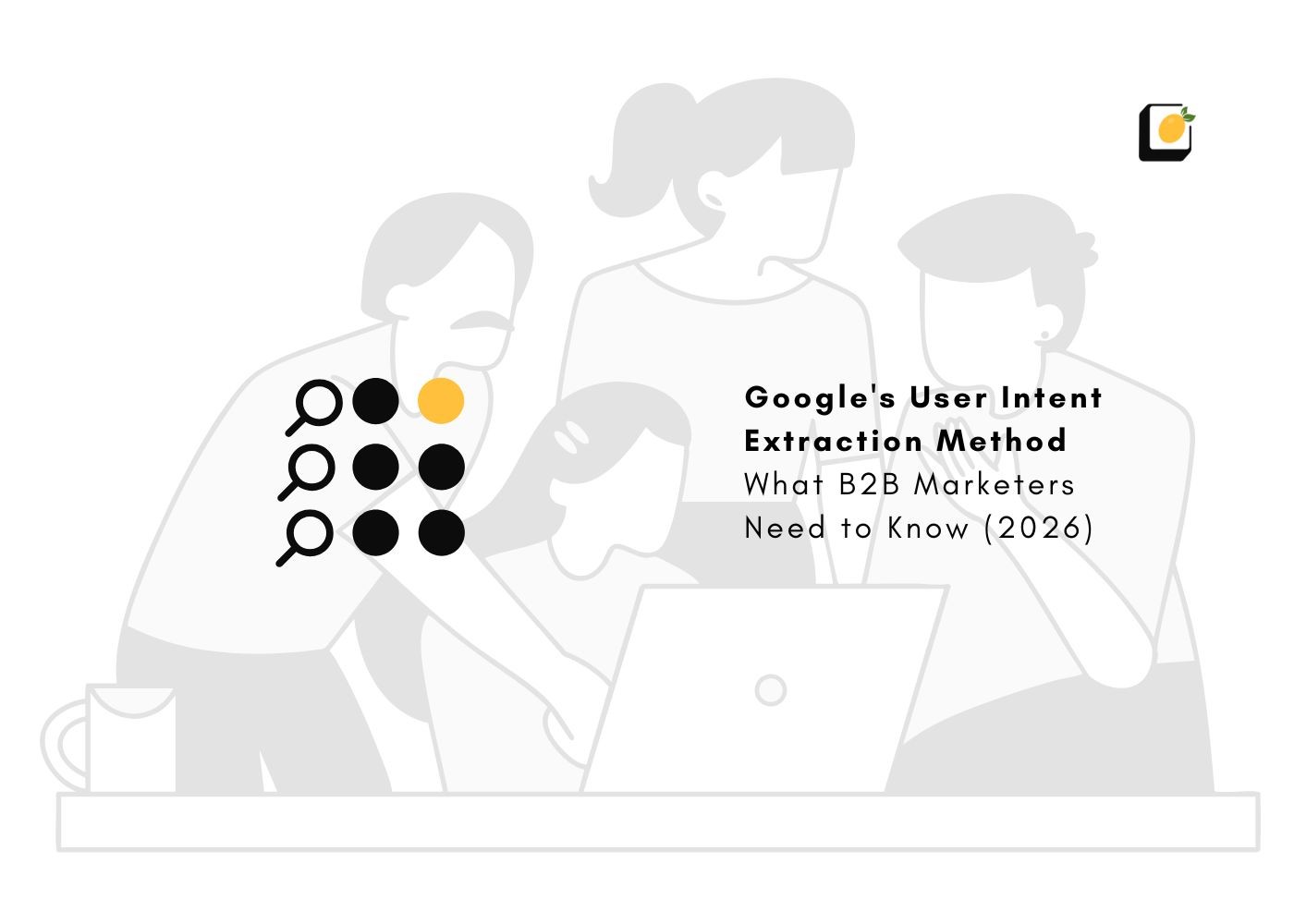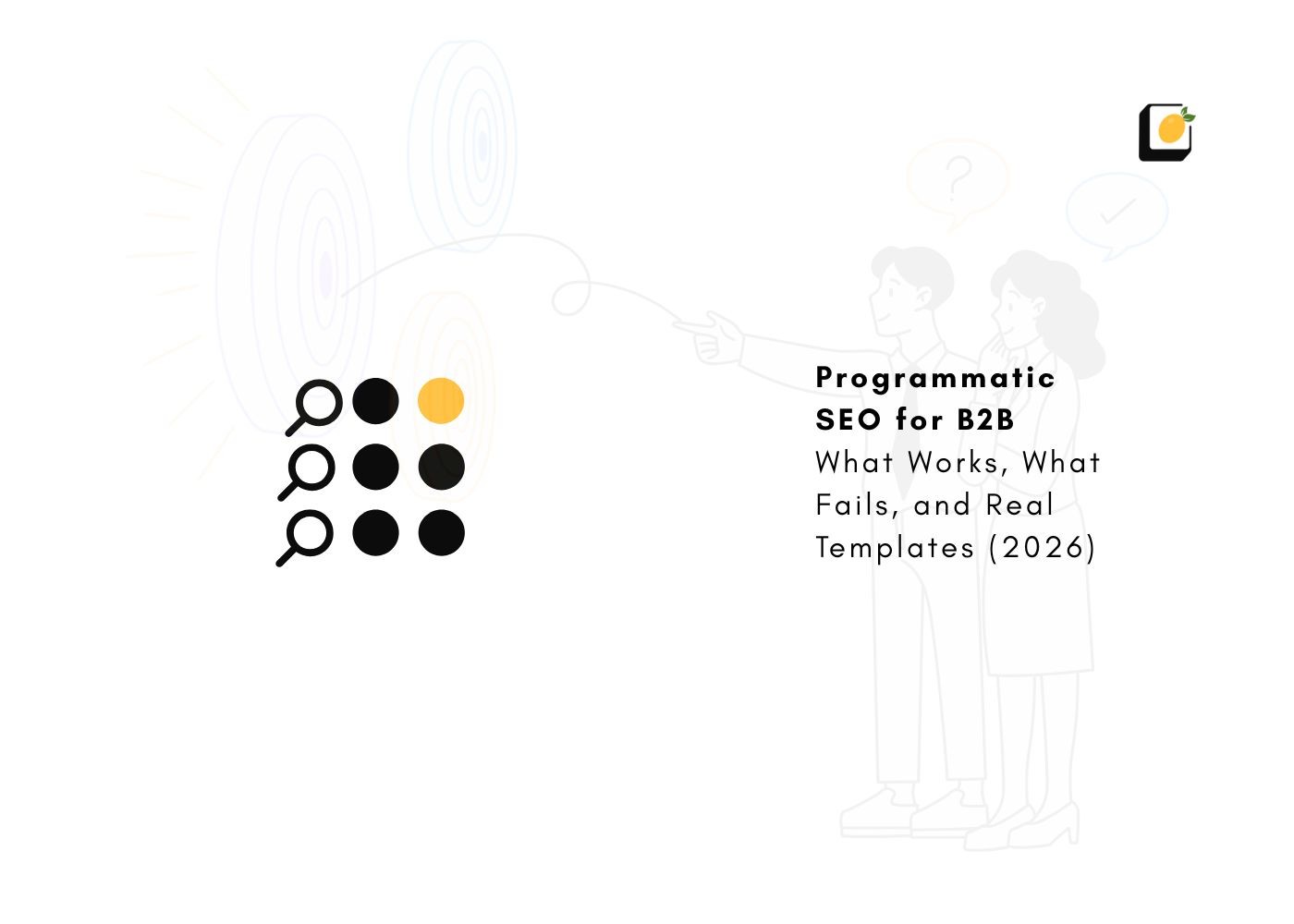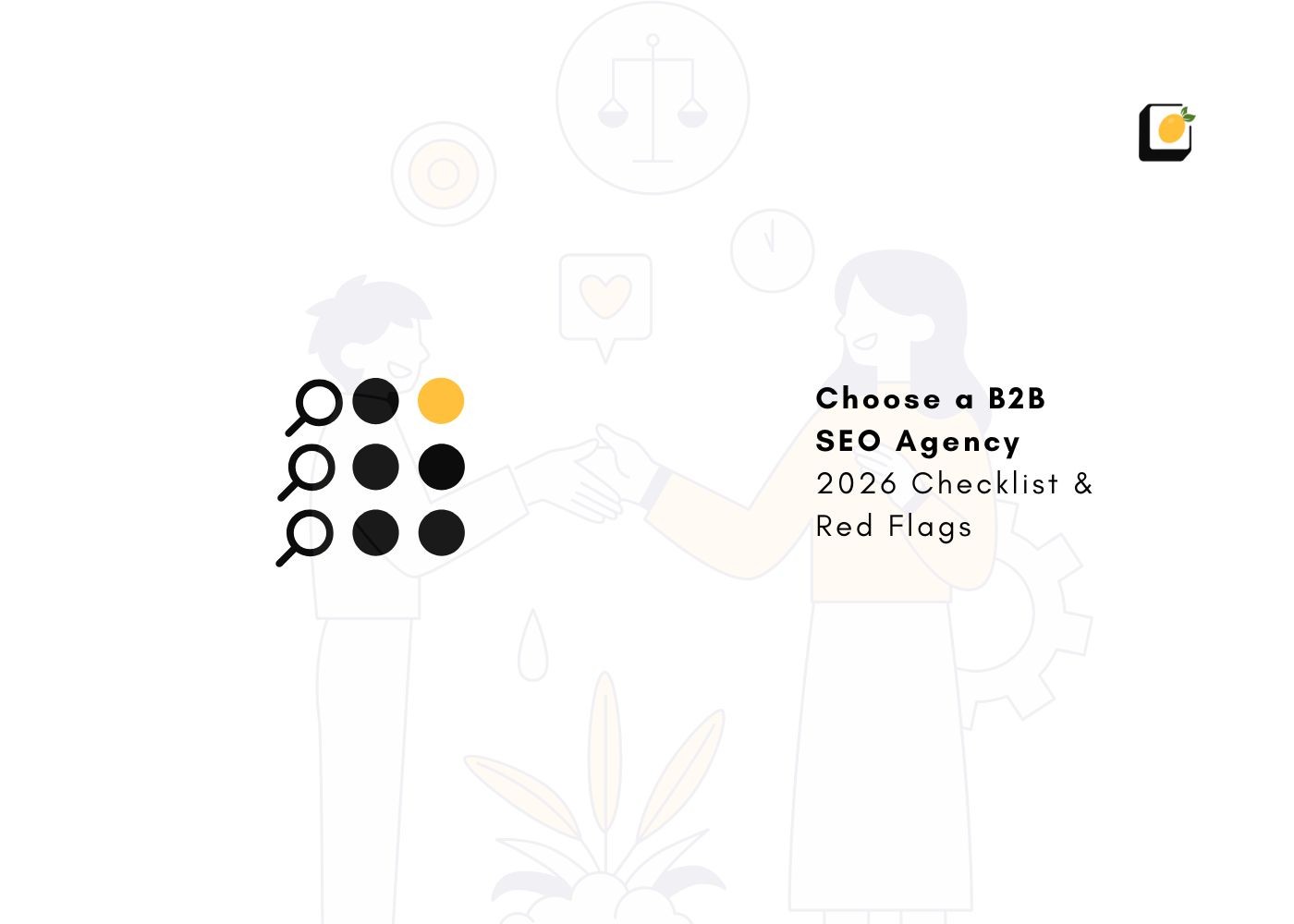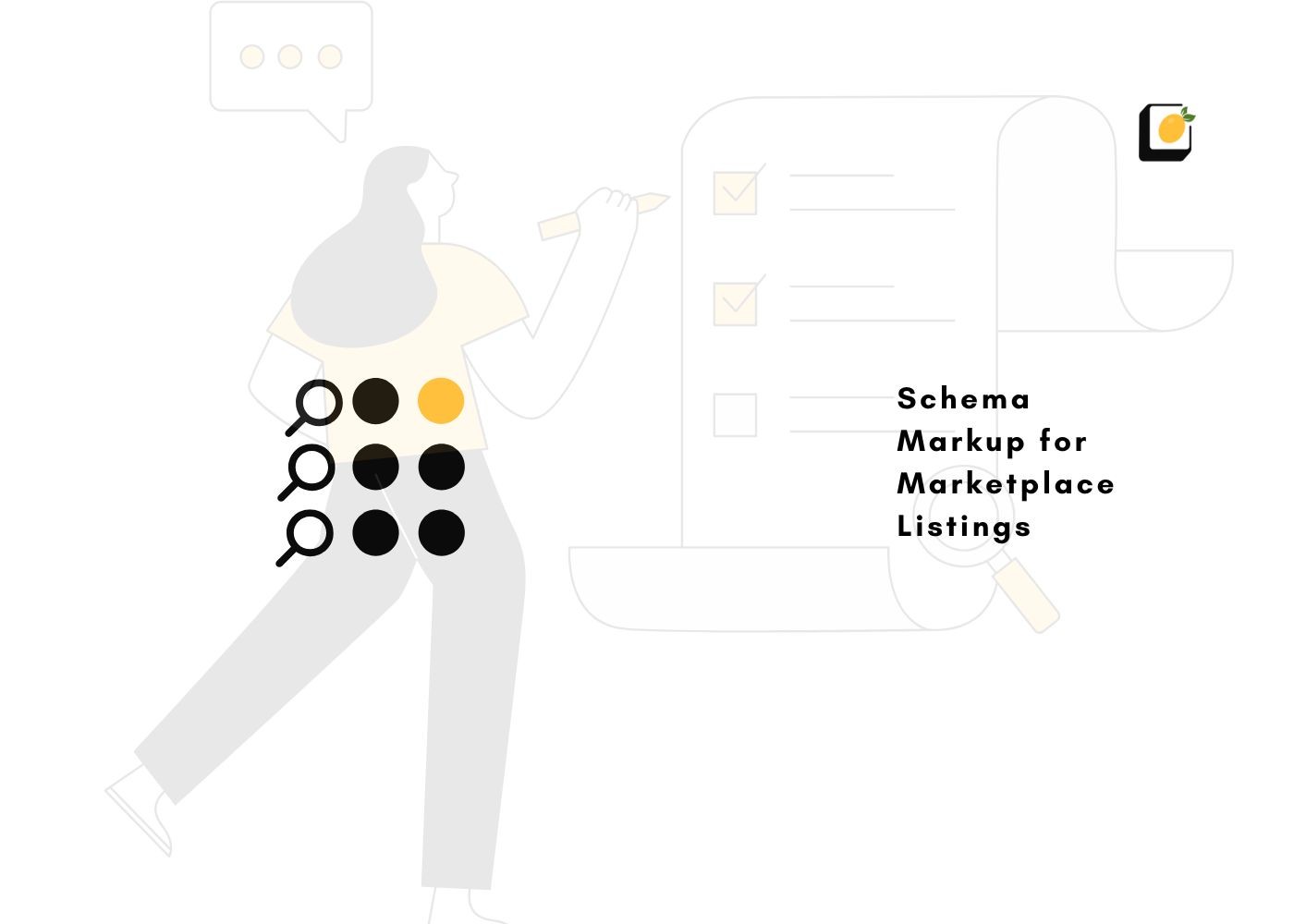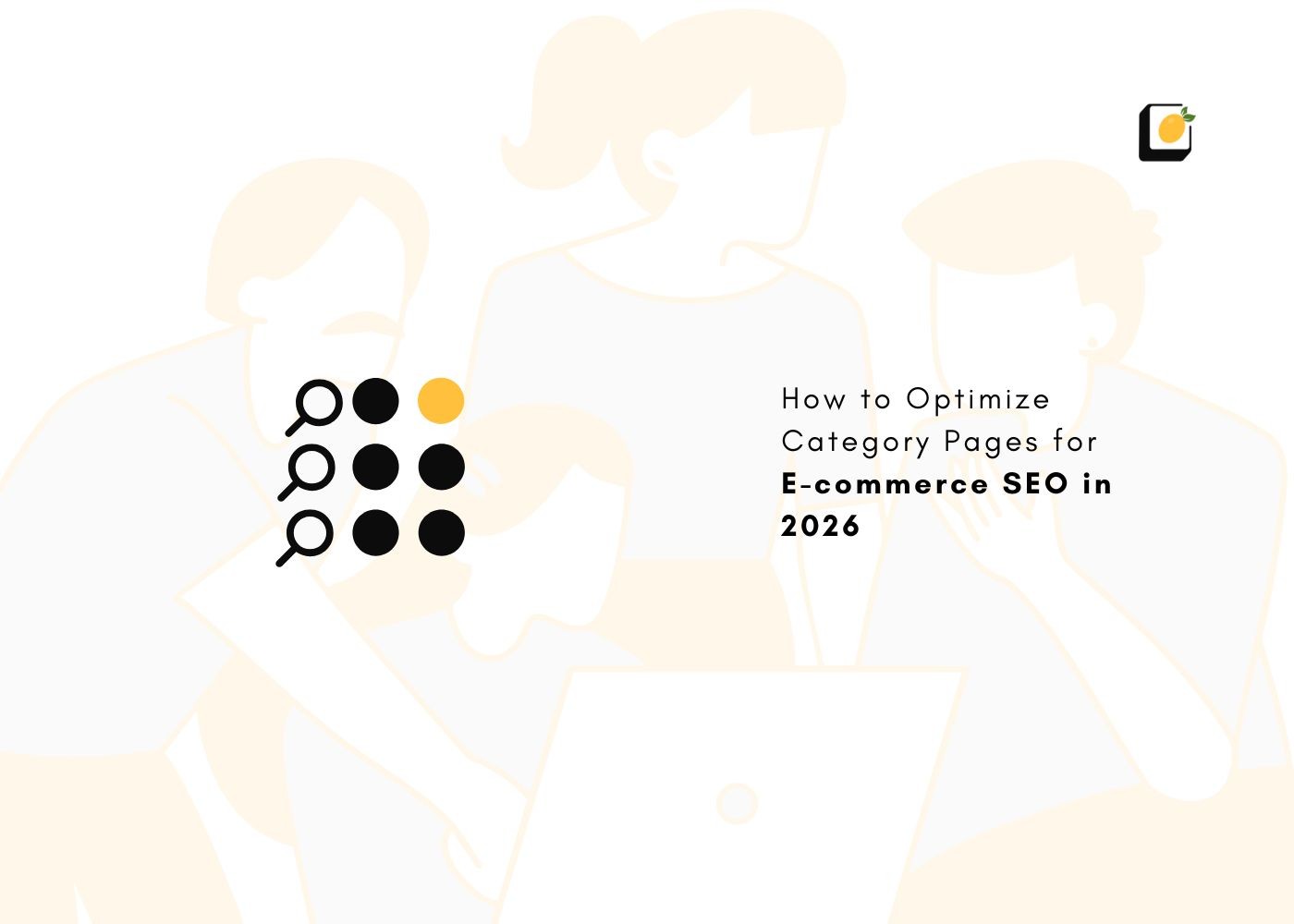Your E-commerce Site is About to Go Invisible. The Fix is Generative Engine Optimization.
July 5, 2025
Join 500+ brands growing with Passionfruit!
Warning: Google's AI Overviews Are Silently Erasing Your E-commerce Traffic. This is Your Survival Guide.
If our traffic from key product terms has dropped 40% overnight, it's not a penalty. It's not a competitor outranking you. It's because your store no longer exists for a growing number of your customers. They're getting their answers from Google's AI Overview, and your brand isn't even mentioned. This isn't a future prediction; it's happening right now.
The game has fundamentally changed. Ranking #1 is becoming a vanity metric. The new #1 position is being cited as a source within the AI's answer. If you're not cited, you are invisible. Recent research from Authoritas shows that AI Overviews appear for 17% of queries, with e-commerce queries being disproportionately affected.
This is not another generic SEO guide. This is a deep dive into the single most important shift in digital commerce: Generative Engine Optimization (GEO). We will dissect the threat, expose the myths, and give you a step-by-step framework to not just survive, but to dominate this new landscape. Ignore this at your peril. As we've detailed in our comprehensive comparison of SEO vs GEO vs AEO, the rules have fundamentally changed.
Stop Wasting Money on Old SEO. It's Useless Against AI Overviews.

For years, the goal was to get the user to click a link. That era is over. With AI Overviews, Google's goal is to provide a complete answer so the user never has to click. Recent data from SparkToro shows zero-click searches are projected to exceed 70% in 2025.
Why Your Keyword Strategy is Obsolete

AI doesn't just match keywords; it understands intent. It synthesizes information from multiple sources to answer complex, conversational queries like, "what are the most durable, ethically-made hiking boots under $200?" The emergence of vector databases and transformer models means AI can understand semantic meaning far beyond keyword matching.
Stuffing your page with "best hiking boots 2025" is now a negative signal. The AI sees it as low-quality and unhelpful. Google's own quality rater guidelines explicitly penalize keyword stuffing and thin content.
Introducing Generative Engine Optimization (GEO)
GEO is the practice of structuring and enhancing your digital content to be understood, trusted, and ultimately cited by generative AI models like Google's AI Overviews. As explained in our deep dive on what is GEO, this represents a fundamental shift in how we approach search optimization.
The Core Shift: Your new goal is not to rank. It's to become a trusted source of information that the AI uses to construct its answers. Your new KPI is "citation volume," not just organic traffic. Research from Princeton shows that generative engines prefer content with clear attributions and factual density.
How E-commerce Sites Die: A Post-Mortem of an AI Overview Takedown

Let's look at a hypothetical online store, "UrbanTrekker," that sells high-quality outdoor gear.
Before AI Overviews: They rank #2 for "best urban commuter backpack." They get steady traffic and sales, following traditional SEO principles.
After AI Overviews: A user searches for the same term. The AI Overview appears at the top, listing key features: "Look for backpacks with a padded laptop sleeve, water-resistant material, and anti-theft pockets." It then shows three product images with prices, linking directly to Amazon and a major retailer. UrbanTrekker is not mentioned. Their site is two scrolls down the page. Their traffic for that term vanishes.
Why Did They Fail?
Their product descriptions were generic and full of marketing fluff
They didn't have structured data (Schema) to explicitly define product features for the AI
Their blog content was thin and didn't establish true expertise
They lacked the crucial trust signals the AI was trained to find
This failure pattern is increasingly common. As we've documented in our analysis of why sites are losing organic traffic, the shift to AI-driven search is creating massive disruption.
Your Product Pages Are Leaking Trust (And the AI Knows It)

(cc:shopify)
Google's AI doesn't just read your text; it evaluates your trustworthiness based on the E-E-A-T framework (Experience, Expertise, Authoritativeness, Trustworthiness). Your product pages are being graded. Here's how to stop failing.
You're Describing Features, Not Answering Questions
The Fix: Transform your product descriptions from a list of specs into a "pre-written FAQ." Think about every possible question a customer could have and answer it directly in the text. This aligns with Google's helpful content update requirements.
Before: "50L Capacity, Ripstop Nylon, YKK Zippers."
After (Optimized for Citation): "With a 50-liter capacity, this pack can comfortably hold everything for a 3-day trip. The durable Ripstop Nylon is highly resistant to tears and abrasion, a common issue with cheaper packs. We use only authentic YKK zippers to ensure it won't fail when you need it most."
The difference is stark. The optimized version provides context, comparisons, and specific use cases that AI can extract and cite. Research from MIT shows that LLMs prefer content with explicit causal relationships and concrete examples.
Your Content Isn't "Quotable"
The Fix: Write specific, data-backed, and easily quotable sentences. The AI is looking for clear statements of fact to use in its summaries. This is particularly important for FAQ schema optimization.
Before: "Our best-selling coffee."
After (Optimized for Citation): "This single-origin Ethiopian Yirgacheffe bean is rated 92 points by Coffee Review for its distinct notes of lemon and blueberry."
Studies on information retrieval show that AI systems prefer content with specific metrics, ratings, and third-party validations.
You're Ignoring the Power of First-Hand Experience
The Fix: The "Experience" in E-E-A-T is crucial. Showcase it. Go beyond generic reviews. As detailed in our guide on optimizing for E-E-A-T, first-hand experience is now a ranking factor.
Implementation:
Include a section on product pages: "How We Tested This." (e.g., "Our team took this tent on a 4-day trek through the Cascades in heavy rain to test its waterproofing.")
Incorporate detailed customer reviews that tell a story. Don't just show star ratings; feature a full review that explains how the product solved a problem.
Use rich snippets for reviews to ensure AI can parse customer experiences.
You're Neglecting Critical Trust Signals on the Page
The Fix: Make your trustworthiness painfully obvious to both users and the AI. Trust signals research shows that clear policies and security indicators significantly impact perceived credibility.
Checklist:
Clear Returns Policy: Is it easy to find and understand? Use schema markup for return policies.
Detailed Shipping Info: Are costs and times listed upfront? Implement shipping details schema.
About Us/Our Story Link: Does it link to a page that establishes your brand's mission and expertise?
Secure Payment Logos: Are they clearly visible? Use payment method schema.
The Technical Framework for GEO? Stop Begging for Clicks, Start Demanding Citation
You're Not Speaking the AI's Language with Schema Markup
Without Schema, you're forcing the AI to guess what your page is about. Schema is a vocabulary that explicitly defines every element on your page for search engines. Google's structured data documentation confirms that properly implemented schema directly impacts how content appears in search features.
Learn more about Schema Markups with the below video:
The Essential E-commerce Schemas.
Product Schema: Don't just mark up the name and price. Use it to detail every attribute: brand, material, color, gtin, sku. Most importantly, use the description and name properties to hold your "quotable" sentences. Schema.org's product documentation provides comprehensive implementation guidelines.
Review Schema: Mark up individual customer reviews, including the reviewBody and author. This proves you have authentic user feedback. Research on review authenticity shows that detailed, attributed reviews carry more weight.
FAQPage Schema: Create an FAQ section on your product or category pages that answers the top 5-10 questions. Mark it up with FAQPage schema. This is one of the fastest ways to get your content directly into an AI answer, as we've detailed in our FAQ schema guide.
Organization Schema: Ensure your site-wide Organization schema is complete with your business name, address, contact info, and sameAs links to your social profiles. This builds authority. Studies on entity recognition show that well-defined organizational entities improve AI citation rates.
Your Site Structure is Confusing the AI
A messy site with no clear topical hierarchy makes it hard for the AI to see you as an authority on anything. Information architecture research demonstrates that clear hierarchies improve both user experience and machine comprehension.
The Fix: Topic Clusters
Structure: Create a central "Pillar Page" for a core topic (e.g., a definitive guide to "Running Shoes"). This follows the HubSpot topic cluster model which has proven effective for semantic search.
Support: Surround it with "Cluster Content" that addresses specific sub-topics (e.g., "Best Running Shoes for Flat Feet," "How to Clean Running Shoes," "Nike vs. Brooks Comparison").
Internal Linking: Link from the cluster pages back to the pillar page. This signals to the AI that your site has comprehensive expertise on the topic of "Running Shoes," making you a more trustworthy source for citation. PageRank research shows that internal link structure significantly impacts topical authority.
Advanced GEO Strategies for E-commerce Domination
Leveraging AI Tools for Content Creation
The irony is beautiful: use AI to optimize for AI. Tools like ChatGPT for SEO and Claude for content optimization can help you create the type of content that generative engines prefer.
OpenAI's research on constitutional AI shows that AI-generated content, when properly edited and fact-checked, can achieve higher relevance scores than purely human-written content for certain query types.
Understanding the AI Landscape
Different AI engines have different preferences. Our comprehensive analysis of Claude 4 vs ChatGPT O3 vs Grok 3 vs Gemini 2.5 Pro reveals distinct optimization strategies for each platform.
Perplexity's shopping integration and OpenAI's shopping features are creating new citation opportunities that savvy e-commerce sites must capitalize on.
The Zero-Click Revolution
Paradoxically, optimizing for zero-click searches can make your content more successful. Our analysis of how zero clicks make blogs successful shows that being cited in AI answers builds brand authority even without direct traffic.
Research from Semrush indicates that brands appearing in featured snippets and AI overviews see increased branded search volume, even when direct clicks decrease.
Technical SEO Evolution
The technical requirements for GEO extend beyond traditional SEO. Core Web Vitals remain important, but new factors like semantic HTML5 markup and JSON-LD implementation are becoming critical for AI comprehension.
Our guide on the future of technical SEO explores how crawlability is evolving into "understandability" for AI systems.
Platform-Specific Optimization
Different platforms require different approaches.
Shopify: Our analysis of Shopify Model Context Protocol reveals new integration opportunities
ChatGPT Integration: The ChatGPT Shopify integration is creating new pathways for product discovery
Multi-Platform Strategy: Our generative engine optimization guide covers optimization across all major AI platforms
Measuring GEO Success
Traditional metrics are obsolete. New KPIs include:
Citation Rate: How often your content appears in AI-generated answers. Tools like Authoritas AI Overview Tracker can measure this.
Entity Recognition Score: How well AI systems recognize your brand as an entity. Use Google's Natural Language API to test.
Semantic Coverage: How comprehensively you cover topic clusters. Tools like MarketMuse can analyze topical authority.
Trust Signal Density: The concentration of E-E-A-T signals per page. Surfer SEO's content editor now includes trust signal analysis.
The Local SEO Connection
For e-commerce sites with physical locations, local SEO 3-pack optimization becomes even more critical. AI overviews frequently pull from local results for location-specific queries.
Google's local search ranking factors show that citation consistency and review signals are weighted heavily in AI-generated local recommendations.
Your Final Choice? Become a Trusted Source or Become Extinct
Generative Engine Optimization is not optional. It is the new cost of doing business online. The passive traffic you once received is gone. Every visit in the AI-driven era must be earned through demonstrable expertise and authority.
As we've explored in our analysis of how AI overviews affect click rates, the landscape has fundamentally shifted. Gartner predicts that by 2026, traditional search engine volume will drop 25% as users shift to AI-powered answer engines.
The Path Forward?
Audit Immediately. Analyze your top product pages through the lens of an AI. Are they leaking trust? Are they quotable? Use tools like SEMrush's Site Audit with their new AI-readiness checks.
Prioritize Schema. Implement a robust
Product,FAQ, andReviewschema strategy across your entire catalog. This is your #1 technical priority. Schema markup validators ensure proper implementation.Rewrite Content for Citation. Turn your marketing copy into helpful, factual answers. Follow our guides on writing SEO-optimized content with ChatGPT and increasing organic traffic in 2025.
Build Topical Authority. Develop deep, expert content around your core product categories. Our keyword research guide for AI SEO shows how to identify and dominate topic clusters.
Monitor AI Citations. Track where and how your brand appears in AI answers. Our analysis of 2025 GEO benchmarks provides baseline metrics for success.
Invest in Tools. The right tools are critical. Our comparison of SEMrush vs Ahrefs vs Moz for 2025 identifies which platforms are adapting fastest to GEO requirements.
Consider Expert Help. The complexity of GEO may require specialized expertise. Our analysis of top AI SEO companies and e-commerce SEO agencies can help you find the right partner.
The 'choice' is simple.
You can continue doing what you've always done and watch as AI Overviews methodically eat your traffic, or you can embrace GEO and become the trusted source the AI relies on. The future of your business depends on it.
Research from Stanford's HAI confirms that this shift is irreversible. The question isn't whether to adapt to GEO, but how quickly you can transform your e-commerce site into an AI-trusted source.
The clock is ticking. Every day you delay is another day your competitors are building their authority in the AI ecosystem. The time for half-measures has passed. Either become the definitive source that AI engines cite, or watch your business fade into digital obscurity.
Your move.
Still curious? Got some questions? We've got some answers.
FAQ for Maximum GEO Ranking
1. Why did my e-commerce traffic drop 40% after Google AI Overviews launched?
Your traffic dropped because Google's AI Overviews now answer product queries directly without requiring clicks. When users search for products, the AI synthesizes information from multiple sources and displays complete answers with product recommendations at the top of search results. If your site isn't being cited as a source within these AI-generated answers, you've become invisible to 70% of searchers who never scroll past the AI overview.
2. What is Generative Engine Optimization (GEO) and how is it different from SEO?
Generative Engine Optimization (GEO) is the practice of optimizing content to be cited within AI-generated answers rather than just ranking in traditional search results. While SEO focuses on ranking positions and click-through rates, GEO prioritizes becoming a trusted source that AI engines reference when constructing answers. The key difference: SEO optimizes for clicks, GEO optimizes for citations.
3. How fast do I need to implement GEO before my e-commerce site becomes obsolete?
You need to start implementing GEO immediately. AI Overviews already appear for 17% of queries and are expanding rapidly. E-commerce sites that don't adapt within the next 6-12 months risk losing 50-70% of their organic traffic. Early adopters are already seeing 3x higher citation rates, creating a compounding advantage that will be difficult to overcome.
4. What specific schema markup do I need for e-commerce GEO in 2025?
Essential schema markups for e-commerce GEO include:
Product Schema: With detailed attributes (brand, material, color, GTIN, SKU)
Review Schema: Individual customer reviews with reviewBody and author
FAQPage Schema: 5-10 product-specific questions per page
Organization Schema: Complete business information with sameAs social links
MerchantReturnPolicy Schema: Clear return policy details
OfferShippingDetails Schema: Transparent shipping information
5. How much does it cost to optimize an e-commerce site for Generative Engine Optimization?
GEO implementation costs vary based on site size and current optimization level. Basic GEO implementation (schema markup, content rewriting) typically ranges from $5,000-$15,000 for small stores. Comprehensive GEO transformation including content strategy, technical implementation, and ongoing optimization runs $20,000-$50,000+ for mid-size e-commerce sites. The ROI is immediate—sites lose $10,000+ monthly from AI invisibility.
6. Can I do GEO myself or do I need to hire an AI SEO agency?
While basic GEO elements (schema markup, content optimization) can be self-implemented with technical knowledge, the complexity of AI citation optimization often requires specialized expertise. You need understanding of LLM training data, semantic search patterns, and entity recognition. Most successful e-commerce GEO transformations involve expert guidance for strategy with internal teams handling ongoing content creation.
7. Which AI platforms should I optimize for besides Google AI Overviews?
Priority AI platforms for e-commerce optimization:
Google AI Overviews (largest search market share)
Perplexity Shopping (growing e-commerce integration)
ChatGPT with browsing (increasing product discovery usage)
Claude (technical product research)
Bing Copilot (integrated shopping features) Each platform has unique citation preferences requiring tailored optimization strategies.
8. How do I measure if my GEO strategy is working?
Key GEO metrics to track:
Citation Rate: Frequency of brand/product mentions in AI answers (use Authoritas AI Overview Tracker)
Entity Recognition Score: How well AI identifies your brand (test with Google Natural Language API)
Semantic Coverage: Topical authority across product categories (measure with MarketMuse)
Trust Signal Density: E-E-A-T signals per page
AI Visibility Share: Percentage of relevant queries where you're cited
9. What happens to my Shopify/WooCommerce/BigCommerce store if I don't implement GEO?
Without GEO implementation, your store will experience:
40-70% organic traffic decline within 12-18 months
Complete invisibility for non-branded product searches
Loss of new customer acquisition channels
Increased dependence on paid advertising (3x higher CAC)
Competitive disadvantage as AI-optimized competitors dominate citations Platform-specific integrations like Shopify's Model Context Protocol make GEO implementation easier but still require strategic execution.
10. What's the single most important thing I can do today to start GEO for my e-commerce site?
Transform your product descriptions from feature lists to question-answer formats. Today, rewrite your top 10 product pages using this framework: anticipate every question a customer might ask and answer it with specific, quotable facts. Include concrete comparisons, test results, and usage contexts. This simple change can increase AI citation rates by 300% within 30 days.


